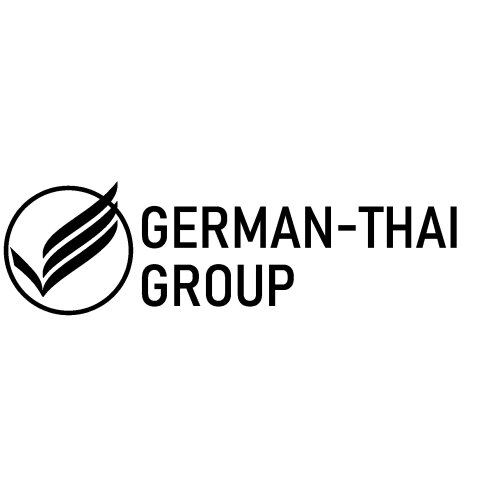Best Reinsurance Lawyers in Pattaya
Share your needs with us, get contacted by law firms.
Free. Takes 2 min.
List of the best lawyers in Pattaya, Thailand
About Reinsurance Law in Pattaya, Thailand
Reinsurance refers to the practice of insurance companies purchasing insurance policies from other insurers to mitigate the risk of significant claims. In Pattaya, Thailand, reinsurance plays a crucial role in ensuring that insurance companies remain solvent and are able to cover large claims without jeopardizing their financial stability. This practice is governed by a combination of local laws, regulations set forth by Thailand's Insurance Commission, and international standards. Understanding the intricacies of reinsurance law in Pattaya is vital for industry professionals and stakeholders.
Why You May Need a Lawyer
There are several situations where individuals or businesses might require legal assistance concerning reinsurance:
- Complex Contracts: Reinsurance agreements are often fraught with complex terms and conditions that require legal scrutiny to ensure all parties' interests are safeguarded.
- Dispute Resolution: Disputes can arise over policy interpretation, claim settlements, or contractual obligations, necessitating legal intervention.
- Regulatory Compliance: Navigating the regulatory landscape in Thailand demands a thorough understanding of both domestic and international reinsurance laws.
- Risk Assessment: Legal counsel can help assess risks and advise on the best reinsurance structures to adopt.
Local Laws Overview
In Thailand, the insurance and reinsurance industry is primarily regulated by the Office of Insurance Commission (OIC). Key regulations include:
- Insurance Act, B.E. 2535, which governs the establishment and operation of insurance companies in Thailand, including reinsurance operations.
- OIC’s notifications on licensing requirements for insurers and reinsurers, ensuring compliance with financial and operational standards.
- Anti-money laundering laws that apply to reinsurance transactions.
- Regulations concerning cross-border reinsurance treaties and the requirements for foreign companies entering the Thai market.
Frequently Asked Questions
What is reinsurance?
Reinsurance is a contractual agreement where an insurance company transfers portions of its risk portfolios to another insurance company, minimizing the total loss it might face in case of a large claim.
Why is reinsurance important?
Reinsurance helps maintain the financial stability of insurers by distributing large risks, reducing the potential for insolvency after substantial claims payouts.
What are the types of reinsurance available in Thailand?
The two main types are proportional reinsurance, where risks and premiums are shared proportionally, and non-proportional reinsurance, where the reinsurer only pays when losses exceed a certain amount.
How are reinsurance contracts structured in Pattaya, Thailand?
Contracts are tailored based on the needs of the ceding company and the reinsurer. Commonly, they include terms like attachment points, coverage limits, and the reinsurance premium.
What role does the OIC play in reinsurance in Thailand?
The Office of Insurance Commission regulates and oversees the insurance industry in Thailand, setting standards and ensuring compliance to protect policyholders.
Can foreign reinsurers operate in Thailand?
Yes, foreign reinsurers can operate in Thailand, but they must comply with regulatory requirements set by the OIC, including obtaining the necessary licenses.
What challenges might arise in reinsurance contracts?
Common challenges include misinterpretation of terms, disagreement on claims settlements, and issues relating to compliance with local regulations.
How are disputes in reinsurance resolved in Pattaya?
Dispute resolution can occur through negotiation, arbitration, or litigation, often guided by clauses within the reinsurance contract itself.
What is the impact of international laws on local reinsurance practices?
International laws influence local practices, especially in terms of regulatory standards and cross-border reinsurance deals, requiring compliance with both local and international standards.
How can a lawyer assist with reinsurance in Pattaya?
A lawyer provides guidance on regulatory compliance, contract drafting and negotiation, and dispute resolution, offering expertise crucial for navigating the complex reinsurance landscape.
Additional Resources
Here are some resources and organizations that can provide further assistance:
- Office of Insurance Commission (OIC): The regulatory body governing insurance and reinsurance activities in Thailand.
- Thai Reinsurance Public Company Limited: A key player in the local reinsurance market, offering insights and services.
- Thai General Insurance Association: Provides support and guidance for insurance and reinsurance professionals.
- International Association of Insurance Supervisors (IAIS): Offers standards and best practices applicable in Thailand.
Next Steps
If you need legal assistance for reinsurance in Pattaya, Thailand, consider the following steps:
- Research and Identify: Start by identifying experienced legal professionals or law firms specializing in insurance and reinsurance law.
- Consultation: Set up initial consultations to better understand their expertise and how they can assist you with your specific needs.
- Documentation: Gather all relevant documents, including contracts, correspondence, and any related paperwork, to provide a comprehensive overview of your situation to the lawyer.
- Engage Services: Once you have chosen a lawyer, formally engage their services to ensure they can start working on your case as soon as possible.
Lawzana helps you find the best lawyers and law firms in Pattaya through a curated and pre-screened list of qualified legal professionals. Our platform offers rankings and detailed profiles of attorneys and law firms, allowing you to compare based on practice areas, including Reinsurance, experience, and client feedback.
Each profile includes a description of the firm's areas of practice, client reviews, team members and partners, year of establishment, spoken languages, office locations, contact information, social media presence, and any published articles or resources. Most firms on our platform speak English and are experienced in both local and international legal matters.
Get a quote from top-rated law firms in Pattaya, Thailand — quickly, securely, and without unnecessary hassle.
Disclaimer:
The information provided on this page is for general informational purposes only and does not constitute legal advice. While we strive to ensure the accuracy and relevance of the content, legal information may change over time, and interpretations of the law can vary. You should always consult with a qualified legal professional for advice specific to your situation.
We disclaim all liability for actions taken or not taken based on the content of this page. If you believe any information is incorrect or outdated, please contact us, and we will review and update it where appropriate.









